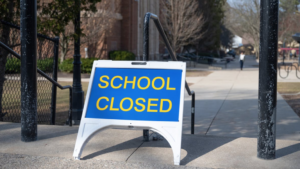Home » Commentary » Opinion » Closures undermined education
· Ideas@theCentre
 New CIS research confirms the breadth of educational damage of school closures — especially troubling for Victorian students finally returning to class next week.
New CIS research confirms the breadth of educational damage of school closures — especially troubling for Victorian students finally returning to class next week.
The analysis paper Parents’ perspectives on home-based learning in the covid-19 pandemic revealed that around 1.25 million students (over 40% ) across NSW, Victoria, and Queensland may have fallen behind while learning at home. It’s estimated Victoria’s disadvantaged students may have gone backward up to six weeks in their progress over the extended period of closures.
The new research makes clear that the quality of schools’ support to children and parents is decisive in how students fared with their learning — and that the quality of this support was mixed.
The secrets to success with home-based learning are sophisticatedly simple: students need regular interaction online with teachers, and parents need regular contact with schools.
Yet, a concerning number of students — as high as 30% in Queensland — didn’t have regular contact online with their teachers. Instead, they were relegated to completing worksheets and working independently. It comes as no surprise that these students were much more likely to have fallen behind.
Parents who were regularly contacted by teachers felt more informed and confident helping supervise learning. However, while many parents were contacted daily or most days, some weren’t contacted at all. Over 50% of parents who weren’t regularly contacted by schools say their child fell behind.
The better equipped parents are, the more effective support they can provide for their child’s learning — a fact that’s as true during the pandemic as it is in more normal times.
It’s clear that the school closures experience will leave lasting impressions to schooling; for students, teachers, and parents.
In households where the home-based learning wheels were well-oiled, parents gained more positive opinions about teachers’ work and schools’ education standards, compared to pre-covid. That’s evidence that parents appreciate the lengths many teachers and schools went to under such difficult circumstances.
It also shows there’s goodwill to be tapped in order to forge more constructive relationships going forward. Capitalising upon this would better support the work of schools, see parents as informed participants in schooling, and ultimately be more conducive for students’ learning.
The pandemic has been an unwelcome disruption to students, teachers, and parents.
Not only is there students’ learning loss for schools to now contend with, but also an imperative that lessons are learnt so that more effective schooling may yet be a silver lining.
Closures undermined education